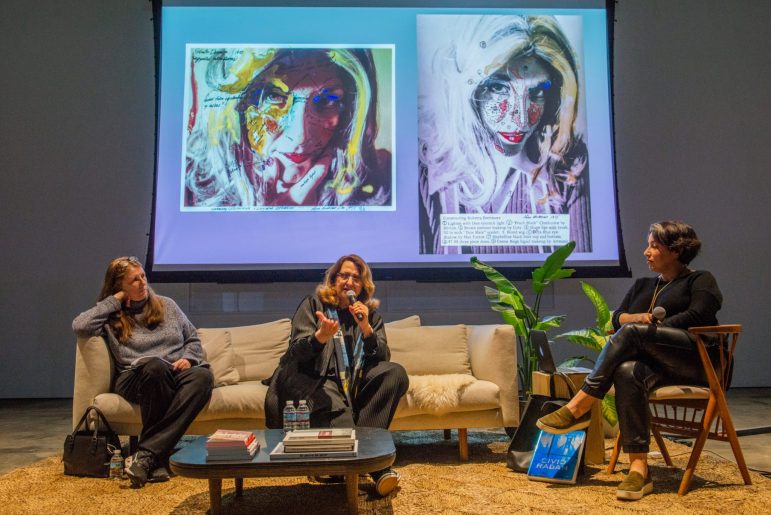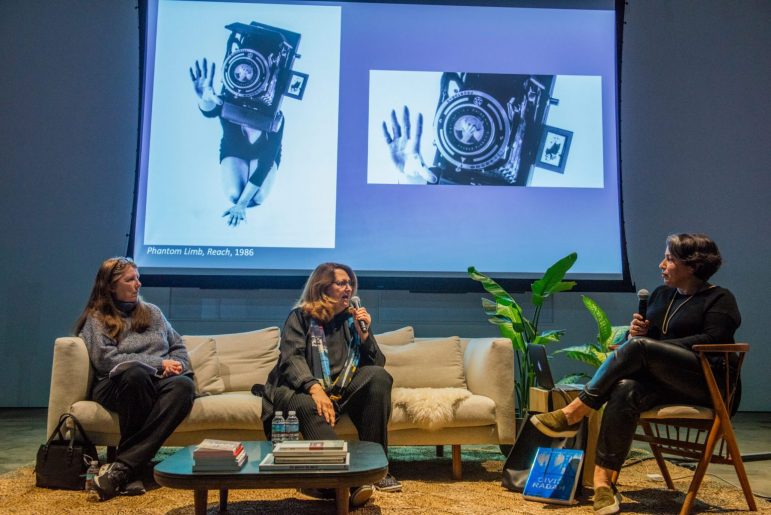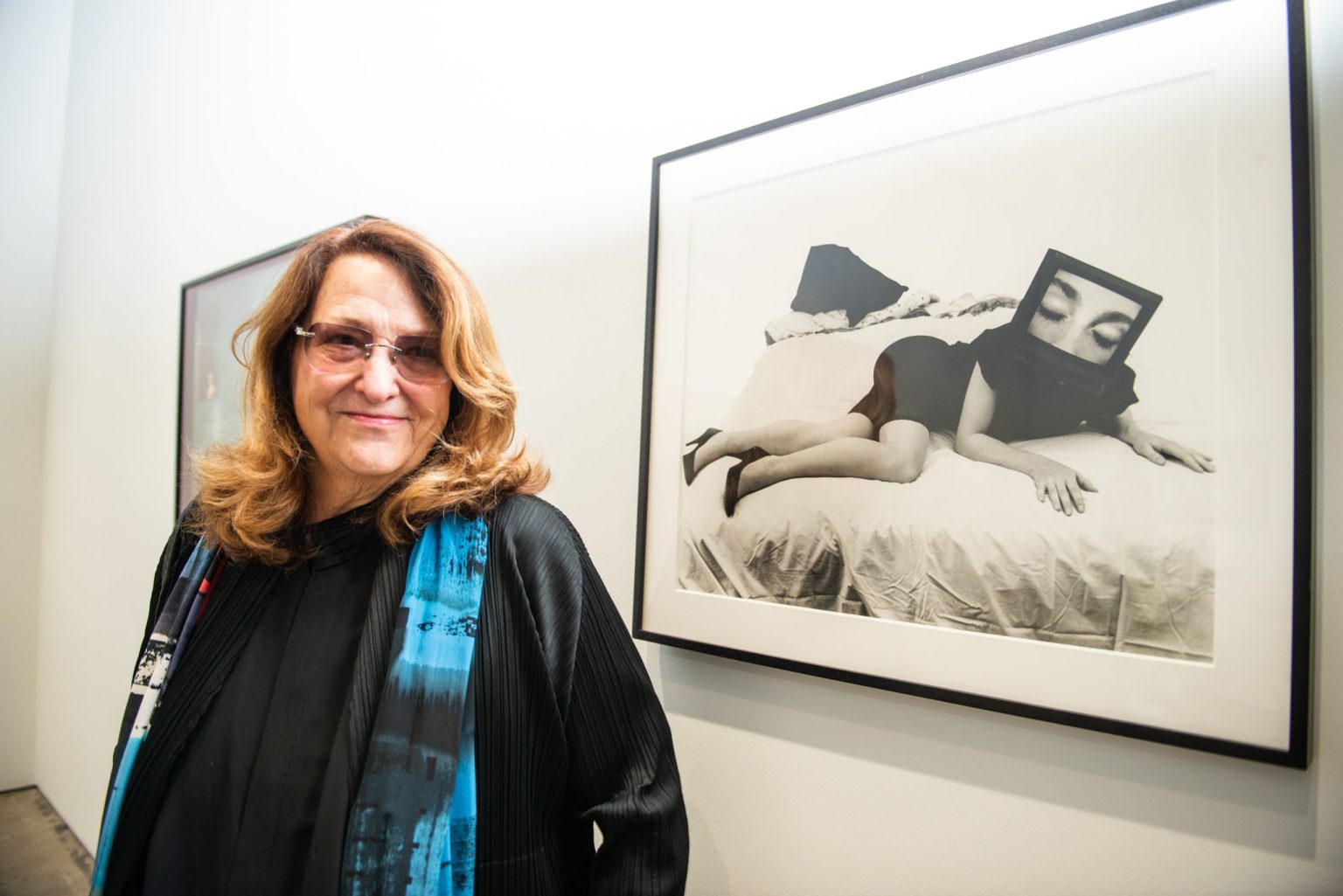Internationally acclaimed media artist Lynn Hershman Leeson has a knack for divining the cultural bent of the future through her art.
On Saturday, March 5, Leeson sat down with feminist scholar Peggy Phelan and SFMOMA curator Corey Keller at the McEvoy Foundation for the Arts to discuss the relationship between technology and the female body. This panel discussion, titled “Person. Woman. Camera. TV.,” was organized by Keller in conjunction with the MFA’s current exhibition, “Image Gardeners,” on display through April 30.
Curated by MFA’s exhibitions and public programs curator Sara Wessen Chang, “Image Gardeners” is an absorbing display of experimental portraiture pulled from the McEvoy Family Collection. Diane Arbus and Vivian Maier are among the women and nonbinary photographers featured in the collection, curated with the aim to “reflect, reframe and resist dominant conventions of representation.”
Leeson’s work is a fitting addition to this collection.
In the early ’60s, Leeson’s imagination was seized by the growing intimacy between humanity and its technological advancements.
She recalled the day she tried to create a copy of a drawing using a Xerox machine and the drawing got stuck:
“Finally, when [my drawing] came through, it was ripped and bent, and it had ink all over it,” she said. “I realized that it was much better than what I did. So I realized at that time that the future was right there, that there was really going to be a merging between humans and technology and machines.”
This revelation — the art of the cyborg — would continue to influence her work in the coming years.
In 1973, Leeson conceived of a fictional character named Roberta Breitmore, predating fictional Instagram influencer Lil Miquela by more than four decades.

“I started to think, ‘What if you created a fictional person that could exist in your own life, and go out into real life?’” Leeson explained. “That was the birth of Roberta Breitmore.”
Breitmore would go on to obtain a driver’s license and bank account, rent an apartment and see a psychiatrist. Her personal style and mannerisms were entirely her own, and her activities were documented in more than a hundred drawings and surveillance photographs.
Breitmore’s performance ended in 1978 in an exorcism ritual that took place at the Palazzo dei Diamanti in Ferrara, Italy.
“[She became] kind of a mirror portrait of what it was like to live during those years,” Leeson said.

Leeson’s work with Breitmore informed her “Phantom Limb Series,” a collection of collaged photographs that splice women’s bodies with technological artifacts like film cameras, wall outlets and clocks.
The work is both visually arresting and loaded in its cultural commentary.
Leeson said of the camera, “In a sense, they were weaponizing women, particularly women in this seduction into being seen, but then again exploited in how they’re seen.”
It’s a familiar premise. In the age of social media, we all know such seduction. And yet the same platforms that allow for our visibility have been shown to exploit us by harvesting our data.
Leeson’s work realizes this reality as well. In a recent self-portrait, Leeson overlaid an image of her face with a QR code. In the upper left-hand corner of the photo collage, there’s a knowing nod to the ultimate driver of data collection, not quite spelled out in its entirety: “-apitalism.”
“We’re all becoming victims of consumerism and the loss of our identity because of that, through the QR codes that we need as a survival mechanism during the pandemic,” Leeson said.
In spite of her sobering depictions of a technologically wrought society, Leeson leads with hope.
“I think art is about hope because you don’t start it unless you’re hopeful you can finish it,” she said.
“I don’t know exactly what’s going to be yet, but that’s what I’ll work on.”
The “Image Gardeners” exhibition of experimental portrait photography runs through April 30 at McEvoy Foundation for the Arts, 1150 25th St., Building B, San Francisco. Admission is free. For hours and more information, visit https://www.mcevoyarts.org/ or call (415) 580-7605.
